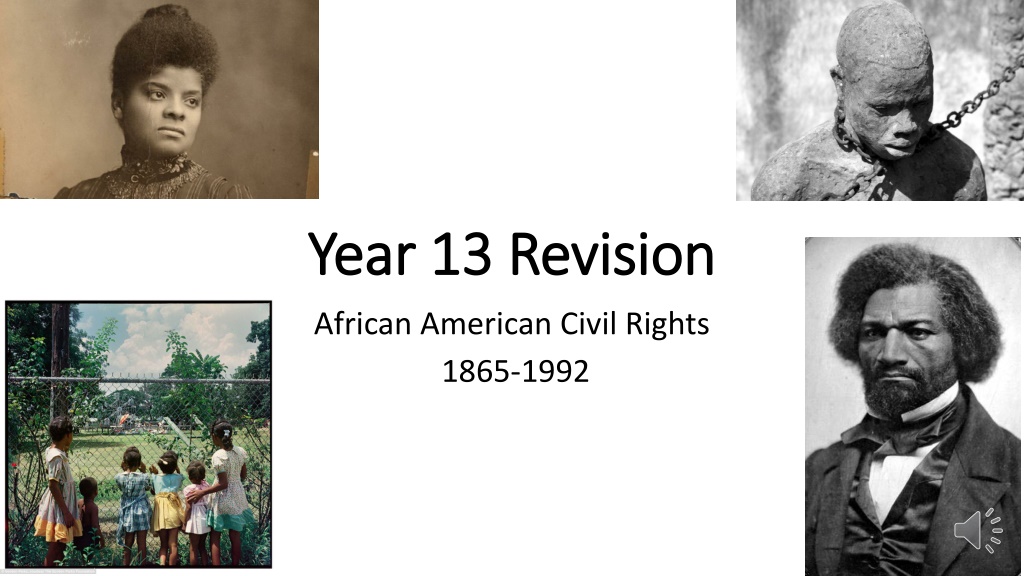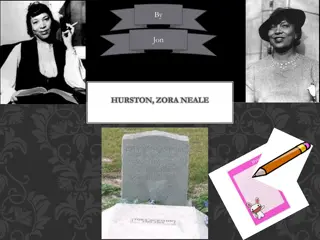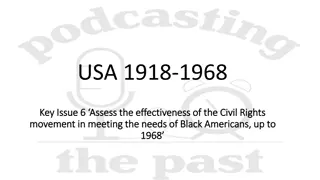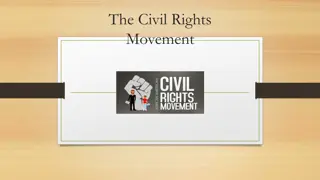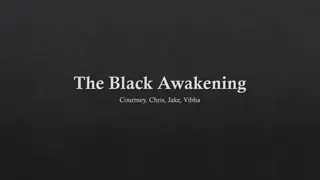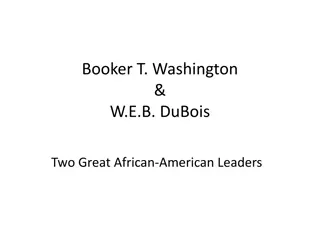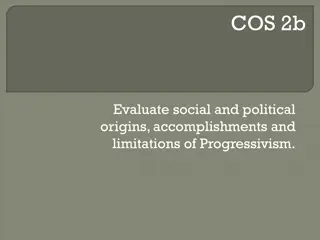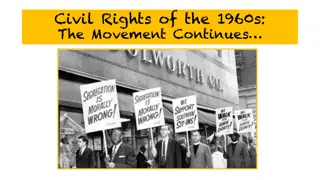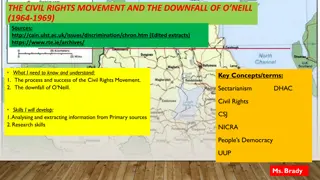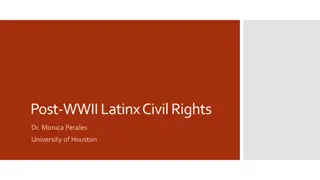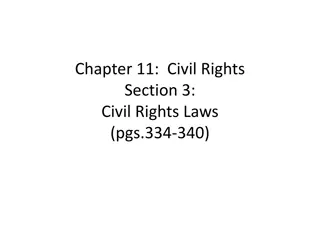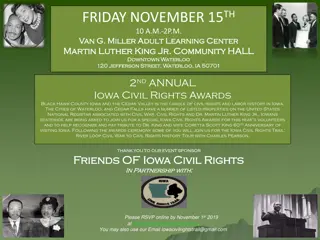African American Civil Rights Movement: 1865-1992 Revision Guide
Thematic study on the African American Civil Rights Movement from 1865 to 1992 discussing social, economic, and political aspects. Exam tips, black leaders' impact, and essential revision books highlighted for comprehensive understanding. Key figures like Dr. King, Booker T. Washington, and Ida B. Wells analyzed for their contributions to societal change.
Download Presentation

Please find below an Image/Link to download the presentation.
The content on the website is provided AS IS for your information and personal use only. It may not be sold, licensed, or shared on other websites without obtaining consent from the author. Download presentation by click this link. If you encounter any issues during the download, it is possible that the publisher has removed the file from their server.
E N D
Presentation Transcript
Year 13 Revision Year 13 Revision African American Civil Rights 1865-1992
Thematic Study Thematic Study - - 1865 1865 - - 1992 1992 Threads / themes that affect African American Civil Rights Social (education, poverty society ) Economic (employment, jobs, finance) Political (Federal Government legislative, executive, judiciary Black leaders Dr King, Malcolm X, Booker T White opposition KKK, Mother s League Black groups NAACP, SNCC etc.
Exam Tips 1 hour 3 main points developed Comparisons made across the period similarly / conversely etc. Show how Civil Rights was afforded and denied, won or lost Comment / write from a helicopter perspective the Big Picture You have to cover the WHOLE period ACROSS the essay NOT in every paragraph. 12 minutes approximately for each paragraph
Black leaders exam question paragraph model When analysing the period 1865-1992 from a social perspective Dr King made an enormous, unparalleled impact on the African American Civil Rights movement. Like no other leader Dr king s words and actions hit America s conscience and his Birmingham and Washington campaigns in 1963 are emblematic of this nationwide impact. His conflict with Bull Connor and his I have a dream speech did more to combat racist attitudes across the period than any other black leader as upon hearing his speech and seeing his confrontation with vicious racists like Connor many people s racist attitudes changed as a result. Similarly, but perhaps less impactful on a social level was Booker T Washington in the 1800s who set up the Tuskegee Institute which provided a vital education for black society. This provided many black students with more social opportunities which allowed society to battle Social Darwinism and hierarchal supremacy proving to the white community it was a myth. Another prominent black leader who had a significant impact on a social level was Ida B. Wells who bravely published the horrors of lynching in her journal A Red Record. Wells was impactful because the said publicity helped change attitudes as people were appalled by the horrors of lynching and garnered more support across America for the Civil Rights Movement. Although Wells and Booker T had an important impact socially on changing racist attitudes in society it was Dr King who was the most important black leader in a social sense because in the 1960 s the mass media allowed his non-violent, impassioned messages to explode across the nation an hit the conscience of the people on a level never seen before or since.
